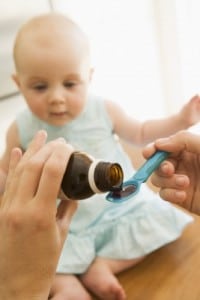
According to Misurac and his team of researchers, nonsteriodal anti-inflammatory drugs, otherwise known as NSAIDs (ibuprofen and naproxen), are the most common but avoidable risks for acute kidney failure in kids. Published in the Journal of Pediatrics, researchers called their study the largest to date on the effects of NSAIDs on the kidneys of children.
Over the course of 11 ½ years, researchers found 1,015 cases of children and teens that had been treated for acute kidney injury from any cause other than health conditions like congenital heart disease. Of those cases, researchers were able to trace 27 cases to the use of NSAIDs – approximately three percent of all cases.
While the percentage is small, the effects are extremely concerning. Even though most of the children were previously healthy, the damage had long-term effects. Four of the preschoolers that had suffered kidney damage from NSAID use needed dialysis, and at least seven suffered permanent kidney damage. Additionally, some of the children affected needed long-term monitoring.
Most of the children had come to the hospital, originally, with an illness that caused dehydration (such as the flu). Dehydration tends to worsen the effect that the drugs have on kidney function. The most common NSAIDs given included ibuprofen (67 percent) and naproxen (11 percent). Most had taken the recommended dosage, and on average, they had only taken the medications for an average of four days.
Researchers say that the results led to a question of whether or not children should be given a routine kidney function test before NSAIDs are ordered in the hospital.
Dr. Felix Remirez-Seijas, director of pediatric nephrology at Miami Children’s Hospital, told HealthDay News that NSAIDs are “overused and abused, both by doctors and patients.” He added that few fevers outside of a hospital should be treated with the use of drugs. If, however, they are needed for higher fevers, he says that parents should make sure that children are well hydrated before administering NSAIDs to reduce the chances of kidney damage.
Related Articles:
- Triaminic and Theraflu Products Recalled Due to Failure to Meet Child-Resistant Closure Requirement
- Girl Thought to Have Brain Tumor Makes Amazing Recovery after Doctors Make a Rare Medical Find
- First Guideline Issued for Type 2 Diabetes in Children






